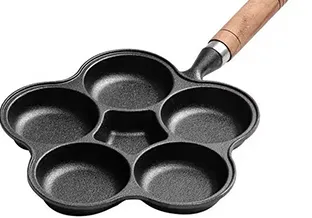
cheap cast iron vs expensive
Cheap Cast Iron vs. Expensive Cast Iron Which One Should You Choose?
When it comes to selecting cast iron cookware, consumers often find themselves torn between affordable options and pricier, high-end alternatives. While both types can be effective in the kitchen, their differences in quality, durability, and performance can significantly influence your cooking experience.
Quality and Durability
Cheap cast iron cookware is often produced using lower-quality materials and may lack the meticulous craftsmanship found in expensive counterparts. This can lead to uneven heat distribution, making it difficult to achieve perfectly cooked meals. In contrast, premium cast iron cookware typically undergoes rigorous quality control processes. These pieces are often hand-finished, offering superior durability and longevity. They can withstand high temperatures and resist warping, ensuring they perform well over many years.
Performance
When you invest in high-quality cast iron, you're not just paying for the brand name; you’re also purchasing superior performance. Expensive cast iron skillets and Dutch ovens usually have a smoother cooking surface, which makes them easier to season and clean. This is particularly important for maintaining the non-stick qualities of cast iron. Cheaper options might have rough surfaces that can lead to food sticking and even burning, requiring more effort to clean and maintain.
cheap cast iron vs expensive

Versatility and Aesthetics
High-end cast iron cookware often boasts a versatile design that allows for use in the oven, on the stovetop, and even over an open flame. Additionally, many premium brands offer various colors and finishes, combining functionality with aesthetic appeal. While there are cheaper options available, they may compromise on design and versatility, which can limit your cooking options.
Price and Value
While cheap cast iron may seem attractive for budget-conscious consumers, investing in more expensive cookware can provide better long-term value. The durability and performance of high-quality cast iron can save you money over time, as you won’t need to replace your cookware as frequently. Additionally, well-maintained cast iron can become a family heirloom, improving with age and use.
In conclusion, when deciding between cheap and expensive cast iron cookware, consider how much value you place on quality, performance, and longevity. While budget options may be tempting, investing in high-quality cast iron can enhance your culinary experience and provide lasting benefits in the kitchen. Ultimately, the choice depends on your cooking needs and how often you plan to use your cast iron cookware.
-
Season Cast Iron Perfectly with GPT-4 Turbo TipsNewsAug.01,2025
-
High Quality Cast Iron Cookware - Baixiang County Zhongda MachineryNewsAug.01,2025
-
Premium Cast Iron Pan: Durable & Perfect HeatNewsAug.01,2025
-
High Quality Kitchen Durable Black Round Cast Iron Cookware Pancake Crepe Pan-Baixiang County Zhongda Machinery Manufacturing Co., Ltd.NewsAug.01,2025
-
Cast Iron Cookware - Baixiang County Zhongda Machinery | Nonstick, Heat ResistanceNewsAug.01,2025
-
High Quality Kitchen Durable Black Round Cast Iron Cookware - Baixiang County Zhongda Machinery | Non-Stick, Heat Retention, DurableNewsJul.31,2025


